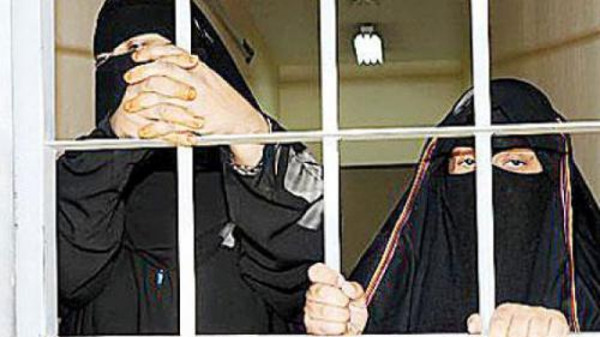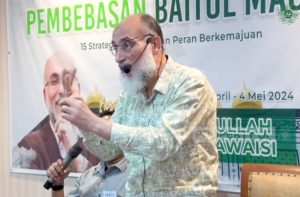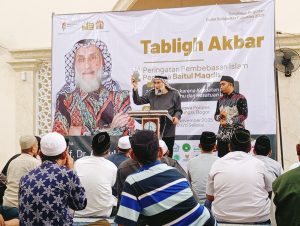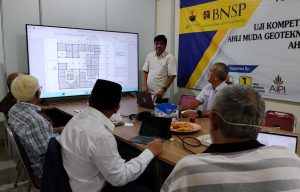Riyadh, 21 Jumadil Akhir 1436/10 April 2015 (MINA) – A wealthy Saudi businessman has initiated a campaign aimed at encouraging men to marry ex-convicts especially women who have repented and regretted the crimes that resulted in their incarceration.
Fahd Saad Al-Johani is married to three women and has children from all of them but he wants to marry for a fourth time. “My fourth wife will be a convict,” he declared, Al-Arabiya News quoted by Mi’raj Islamic News Agency (MINA) as reporting.
He said female ex-convicts have to be encouraged to marry so they can lead a normal life when they are released from jail.
“Why do we always forgive men’s sins and crimes but are not ready to do this with women?” he questioned.
Also Read: Syria, Jordan Condemn Netanyahu’s Visit to Occupied Syrian Buffer Zone
Al-Johani said he has always wondered where ex-convicts go if their families refuse to accept them upon their release. He was surprised to learn that many ex-cons return to a life of crime because they are rejected by their families and society.
“Allah accepts repentance and forgives sinners. Why do we, as human beings, close the doors in the faces of female ex-cons? Why do not we give them hope for a new life? Why do we prevent them from settling down and enjoying a happy married life?” he asked.
Al-Johani said he spoke to a number of scholars and preachers who liked his idea and encouraged him to establish a charitable society to look after the affairs of ex-con women.
“I have asked officials at the Ministry of Social Affairs to recommend a female convict who is about to be released from jail so I can marry her,” he said while adding he will soon launch his society to look after the affairs of women convicts and help them find suitable men to get married to.
Also Read: UNIFIL Reports Over 7,300 Israeli Violations of Lebanese Airspace Since Ceasefire
Ziyad Saad Al-Maawi, a Mazoun (marriage official) said marrying an ex-convict will confirm her repentance from the mistake that landed her in prison in the first place.
“Marrying an ex-con should not be a cause of worry that she may return to a life of crime and repeat past mistakes,” he said while urging eligible men to help women prisoners start a new life after their release from prison.
Al-Maawi said he had helped two convicts inside prison get married so they can live together legally. The man and woman were jailed because they were living together without a marriage contract.
Omar Zuhair Hafiz, supervisor of the National Society for Human Rights (NSHR) in Makkah region, welcomed Al-Johani’s proposal and said Saudi society should not judge ex-convicts after they complete their jail terms and are released.
Also Read: Russia Condemns UN Gaza Resolution, Says It Contradicts Palestinian Statehood
“We should not always look at female convicts as criminals. We should help them enjoy their God-given rights ensured by Islam,” he said.
Hafiz said once a female convict has completed her jail term, she is a free person who should only be judged by her manners and ethical behavior.
“We should look at female ex-convicts who are released after serving their sentences as normal human beings with rights and duties toward their families and society,” he said.
Also Read: Israeli Airstrike on Palestinian Refugee Camp in Lebanon Kills 13
Faisal Awad, an Islamic researcher, said once a convict is released, this means that she has paid the price of her crimes or mistakes.
“Every one of us is liable to make mistakes. When a male or a female prisoner is released, we should rehabilitate him/her and enable them to become a useful member of society,” he said.
Awad warned against looking at released prisoners as criminals and asked the families of ex-con women to take them back in their homes and allow them to lead a normal life.
Maj. Gen. Ali Hussain Al-Harithy, former director general of prisons, said the chances of ex-con women getting married are very slim because they require the approval of their male guardians and the presence of witnesses.
Also Read: UN Security Council Adopts US-backed Resolution to Deploy International Force in Gaza
He said when a male guardian refuses to marry a woman under his guardianship, the prison administration will exert all efforts to convince him to change his mind before finally going to court to complete the marriage.
Maj. Gen. Al-Harithy asked men wishing to marry ex-convicts to apply to the prison’s administration and to the welfare reconciliation committees to help them find a suitable bride.
Nasreen Abu Taha, a supervisor of a social protection home where female ex-cons whose families have refuse to accept them are hosted, said the home has received a number of requests by men wishing to marry ex-con women.
“Since the home was established about three years ago, three ex-con women have been married and are now living happily,” she said.
Also Read: UNIFIL Condemns Israeli Tank Fire Targeting Peacekeepers in South Lebanon
Abu Taha said it was very common for families to refuse to accept the return of female members who were locked away. Most families also refuse to approve of their marriages.
“In these cases, we obtain the consent of the Interior Ministry and go to court to complete the marriage,” she said. (T/P006/R03)
Mi’raj Islamic News Agency (MINA)
Also Read: Israel Fires on UNIFIL Peacekeepers in Southern Lebanon


































 Mina Indonesia
Mina Indonesia Mina Arabic
Mina Arabic